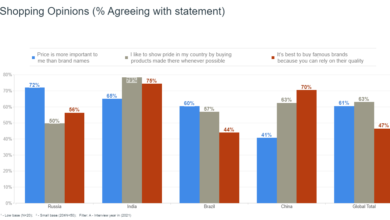Academic Validation: Understanding Its Power and Impact

Academic validation is a phrase you might hear often in classrooms, student discussions, or even at the dinner table. But what does it really mean? And why is it so important to so many young learners?
In the simplest terms, academic validation refers to the feeling of self-worth or pride someone gets from doing well in school. It happens when grades, praise from teachers, or top scores make a student feel smart, successful, and capable. For some, it’s like fuel that keeps them motivated. For others, it might be a heavy weight that causes stress or anxiety.
In this article, we’ll explore the meaning, benefits, challenges, and importance of academic validation in student life. We’ll dig deep into the topic using clear examples, expert insights, and useful tips. Whether you’re a student, teacher, or parent, this guide will help you understand why academic validation matters and how to handle it in healthy ways.
What Is Academic Validation?
Let’s begin by breaking it down. Academic validation is the approval or recognition a student feels when they succeed academically. It can come from others—like teachers, parents, or friends—or from within.
Signs of Academic Validation:
- Feeling proud after getting an A on a test
- Smiling when a teacher says “Good job”
- Wanting to keep up high grades to feel successful
- Comparing school achievements with others to feel better or worse
Sometimes, students rely so much on this kind of validation that it becomes tied to their identity. That’s when things can get a little tricky.
Why Do Students Seek Academic Validation?
Ever wonder why so many students care so deeply about their grades or rankings? That’s where academic validation plays a big role.
Reasons Behind the Need:
- Desire for approval from parents or teachers
- Sense of competition with classmates
- Fear of failure or rejection
- Personal goals or dreams like scholarships or college admissions
- Cultural expectations where academic success equals self-worth
For many students, being good at school isn’t just about learning—it becomes part of who they are. And while that can drive them to do great things, it can also create pressure.
The Bright Side of Academic Validation
Let’s start with the positives. Academic validation, when handled in a balanced way, can truly uplift a student.
Benefits Include:
- Increased motivation to study and do well
- Stronger focus and discipline in learning
- Positive self-esteem when recognized for hard work
- Improved confidence in solving problems and making decisions
- Better opportunities through awards, scholarships, and achievements
Feeling good about doing well isn’t a bad thing! In fact, it can help build lifelong skills like perseverance, time management, and self-control.
The Dark Side of Chasing Academic Validation
However, like anything else, too much of a good thing can turn harmful. When students become dependent on academic validation for self-worth, problems can start to surface.
Potential Drawbacks:
- Anxiety and fear of failure
- Burnout from overworking
- Low self-worth when grades drop
- Unhealthy comparisons with others
- Avoidance of risks or challenges to protect their “smart” image
It’s like walking a tightrope—one small wobble, and everything feels like it’s falling apart. That’s why it’s important to balance success with self-compassion.
How Academic Validation Affects Mental Health
There’s a strong link between academic validation and mental well-being, especially in teens and young adults. While success can boost happiness, constant pressure can cause the opposite.
| Mental Effect | Cause Related to Academic Validation |
| Anxiety | Fear of losing high grades or status |
| Depression | Feeling unworthy when not recognized |
| Perfectionism | Pressure to always perform perfectly |
| Burnout | Long hours of study without balance |
| Low Confidence | Tying self-worth only to school marks |
In severe cases, students may even begin to believe that they’re only “as good” as their GPA. That’s a belief worth challenging.
Developing a Healthy Relationship with Academic Validation
So how can students enjoy the positives of academic validation without falling into its emotional traps? The answer lies in balance, reflection, and support.
Practical Tips for Students:
- Celebrate effort, not just outcomes
- Set personal goals based on growth, not comparison
- Learn from mistakes instead of fearing them
- Talk to someone—a friend, teacher, or counselor—when stress builds up
- Enjoy learning for the sake of learning, not just for the grade
When students realize that their value isn’t based solely on test scores, they grow into stronger, wiser, and happier learners.
What Teachers and Parents Can Do
Support from adults plays a big role in how a student handles academic validation. A few encouraging words—or the lack of them—can shape how a child sees themselves.
Helpful Actions:
- Praise hard work, not just “being smart”
- Talk about the importance of learning, not just grades
- Help set realistic expectations and avoid pressure
- Be there emotionally during academic highs and lows
- Encourage activities outside of school: sports, music, art, and friendships
By being understanding and positive, adults can help children and teens build resilience and self-worth that go far beyond the classroom.
Academic Validation vs. Internal Motivation
Here’s something important to know: academic validation comes from outside, but internal motivation comes from within. The best learners have both.
Key Differences:
| Academic Validation | Internal Motivation |
| Comes from others’ praise | Comes from personal passion |
| Can fade when praise is gone | Lasts even without rewards |
| May cause stress if missing | Feels satisfying on its own |
| Relies on performance | Focuses on growth and curiosity |
Encouraging internal motivation—like enjoying a topic just because it’s interesting—builds lifelong learners. That’s the real goal of education.
The Role of Culture in Academic Validation
In some families or societies, academic success is seen as the highest achievement. While this can push students toward excellence, it can also bring extra pressure.
Cultural Influences:
- Belief that education equals honor or status
- Expectations to become doctors, engineers, or lawyers
- Limited support for non-academic interests
- Shame or judgment for struggling in school
Understanding these cultural elements helps educators and parents respond with compassion. Every student deserves to feel valued for who they are—not just for how they perform.
Using Academic Validation to Inspire Growth
Here’s the good news: academic validation isn’t all bad. In fact, it can be a powerful tool for building confidence, setting goals, and achieving dreams—if used wisely.
Healthy Ways to Use It:
- Reflect on what you’re proud of and why
- Use praise as motivation, not your whole identity
- See setbacks as chances to grow, not signs of failure
- Value the journey of learning, not just the end results
- Share your success with others, but don’t let it define you
When used as a guide—not a rule—academic validation can encourage students to work hard while still loving who they are.
Wrapping Up: The Truth About Academic Validation
So, why do we care so much about academic validation? Because it’s a very real part of growing up in today’s world. Whether it lifts you up or weighs you down, it’s a force that touches every student in some way.
Understanding academic validation helps us manage its effects. We can learn to enjoy the recognition without being owned by it. We can chase excellence without fearing mistakes. And most of all, we can remember that our worth isn’t measured by numbers on a paper, but by the kind of person we become.
In the end, academic validation should be a spark—not the whole flame. Let it motivate you, but don’t let it control you. And always, always believe in your value beyond the grades.
Now that you understand the truth about academic validation, you’re better prepared to use it as a strength—not a struggle. Keep learning, keep growing, and don’t forget—you are more than your report card.





